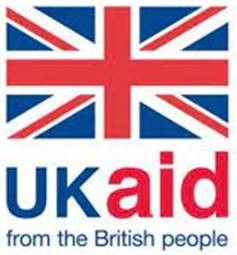“Best and possible” instead of “All or nothing”
Out of the box ideas for COVID-19 response in Northwest Syria
Every day, there are increasing numbers of COVID-19 cases and deaths in Northwest Syria (NWS). Given the fragmented NWS health system, recommendations by the WHO and other international authorities are not practical for this conflict-affected area.
To prevent health system collapse and protect ourselves, our families, and our communities, we have to approach the problem with a broader perspective and realistic and applicable recommendations for people who are already exhausted by displacement and bombardment. For example, the complete closure of schools and universities has been a controversial topic even in high-income countries, and its consequences will be particularly grave for a generation who grew up in war and displacement. Let us move away from the concept of “all or nothing” to the concept of “best and possible”.
Instead of canceling the whole teaching year, we could postpone the first semester, which begins in the winter – when the second peak is expected, to the spring. Then the second semester can begin in summer 2021. It is only a shift away from the peak, and would not have a major detrimental effect on students’ education.
Alternatively, we could continue with the current semesters while adding some measures to ensure partial social distancing within classes. A potential solution to this difficult problem could involve re-structuring lessons as follows:
- Relying on online or recorded lectures to reduce physical contact as much as possible. Although mobile phone and internet networks are modest, they are generally available almost everywhere, even in displacement camps.
- Restricting physical presence to practical lessons that cannot be taught online.
- Dividing attendance into morning and evening shifts and using weekends, which will reduce the number of students within a room.
- Providing everyone with reusable face masks and hand sanitizers.
- Granting sick-leave to students and teachers who have flu-like symptoms.
NWS is the home to four million people, and social distancing might seem difficult as 1.2 million live in displacement camps. Nonetheless, several local measures might be feasible to reduce virus spread:
- Temporary suspensions of mass gatherings such as weddings and funerals.
- Prohibiting non-essential markets that tend to be busy such as for animals and motorcycles.
- Using street vendors to distribute vegetables and bread on a daily basis to houses and camps, which could reduce market congestion significantly.
- Suspending or reducing some social behaviours such as shaking hands, hugging and kissing.
These measures, which are both realistic and do not require additional resources, can be considered as alternatives to help contain the pandemic in this setting. Implementing these measures might provide some protection for people trapped in a protracted conflict and the COVID-19 pandemic, which is a terrible situation to be in.
Written by Omar Alrashid Alhiraki M.D.
Ex-Trauma and Orthopaedic Resident at Bab Al-Hawa Hospital, Idlib, Syria
Interested in Public Health in Conflict settings


